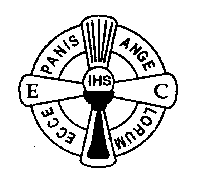Excerpts
From the Manual of the
Eucharistic Crusade of the Apostleship of Prayer
Published
in 1962 by the Central Office of the Eucharistic Crusade, Rome

Educating the Youth to Live the Mass
TEACHING CHILDREN TO PRAY:
Fourth Stage:
This period covers the time of puberty. Generally the fourth stage will begin at about the age of twelve or fourteen, and will run until the youths leave the Crusade. Up to this point the Crusader has been praying in a way suited to the child's mentality. But now his prayer should gradually change as he begins more and more to pray as an adult. We propose the following norms, partly of a general nature, partly applicable to the special formation of the Crusade.
1. In this period the way of praying must be suited to the adolescent personality and adapted to prepare the Crusader for his adult life of prayer. As a rule one can say that the difference between the adolescent and the adult is less in the method than in the object of prayer which always depends to some extent on the conditions of the life of the person concerned.
2. To bring about this progress, it is necessary to give the young people some deeper instruction on the nature, importance, dignity and qualities of prayer. The following should be noted.
a) They ought to understand better the dignity of prayer and the obligation to pray. Prayer demands a deep humility in the presence of the Divine Majesty, yet at the same time it leads to an intimate familiarity with God. Of ourselves, we can do nothing. We need the help of God in all things. And to obtain this help, we must pray. Yet in this complete dependence on the goodness of God is to be found our own dignity and happiness.
b ) Young people can learn the practice of prayer from the example of those holy men and women who did so much by their activities for the progress of the kingdom of Christ on earth, and yet at the same time were men and women dedicated to prayer. Examples can be taken from Scripture (Our Lord and Our Lady, the prophets of the Old Testament, the apostles, especially St. Paul and St. John) or from the lives of the saints whom the Church honours; all of whom were past masters in the art of prayer.
c) Some ascetical and spiritual instruction on prayer should be given to the young people. These instructions should rather treat the difficulties and dangers that generally occur to those who try seriously to pray. So, for example, something should be said about mechanical babbling of prayers, about the temptation to keep prayer to a minimum, about reducing prayer exclusively to prayer of petition, about the connection between prayer and a good life, about sincerity in prayer, about distractions during prayer, about the emotions and the spirit of piety, about perseverance in prayer, about confidence and trust.
Home | Contact
| Mass Centres | Schools
| Pilgrimages | Retreats
|
Precious Blood Residence
District Superior's
Ltrs | Superor General's
Ltrs | Various
Newsletter | Eucharistic
Crusade | Rosary Clarion | For
the Clergy | Coast to Coast |
Saints | Links